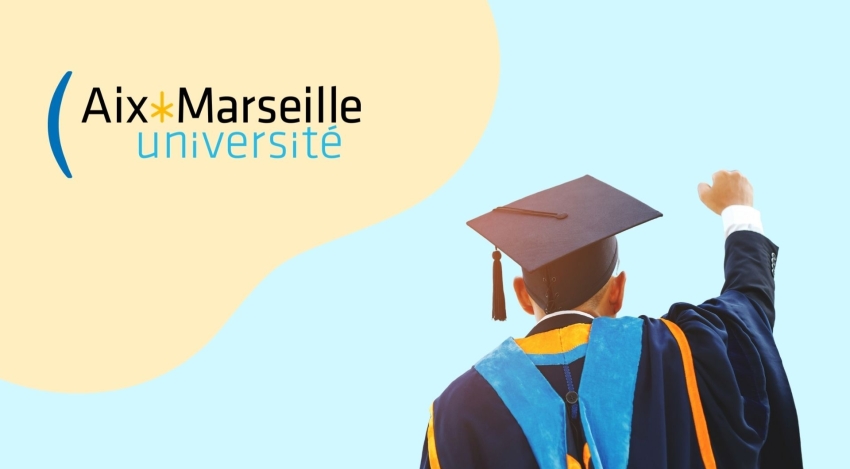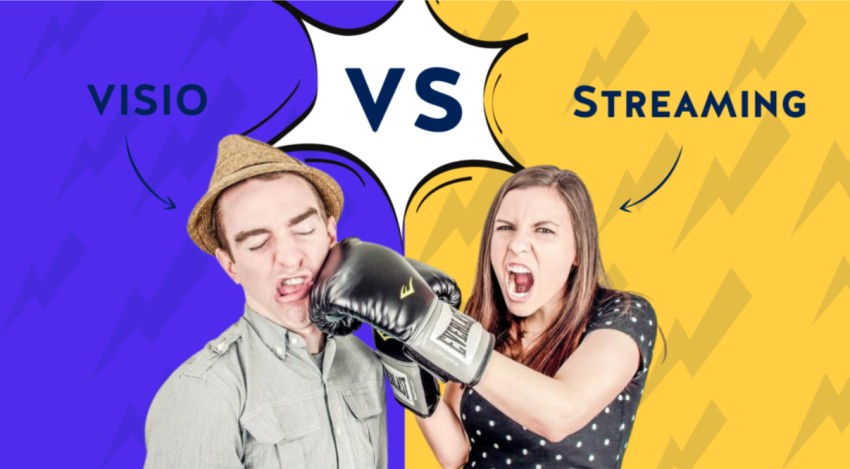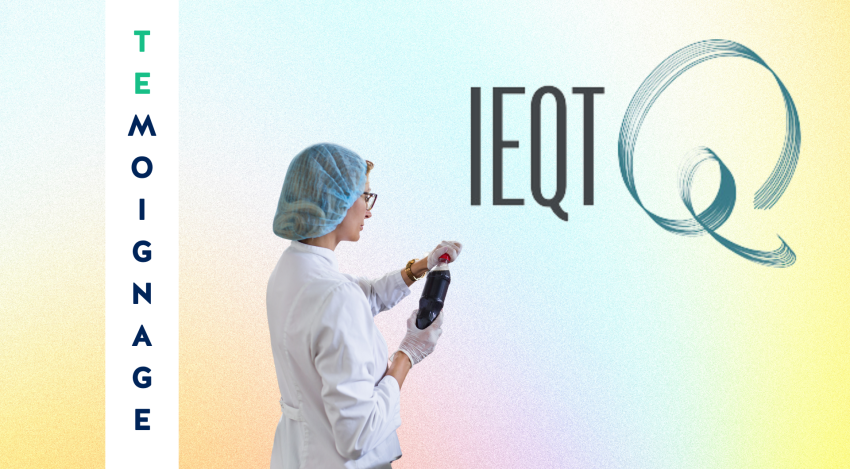

This month, discover how IEQT Marseille has implemented hybrid learning in its programs. Since 2016, the IEQT Marseille Campus has trained over 300 students and offers Bachelor programs in Quality and Safety Management and a Master's program in Risk Management.
We interviewed Jeanne-Marie Jubé, Deputy Director, as well as a Master's student in Risk Management who shared their hybrid learning experience.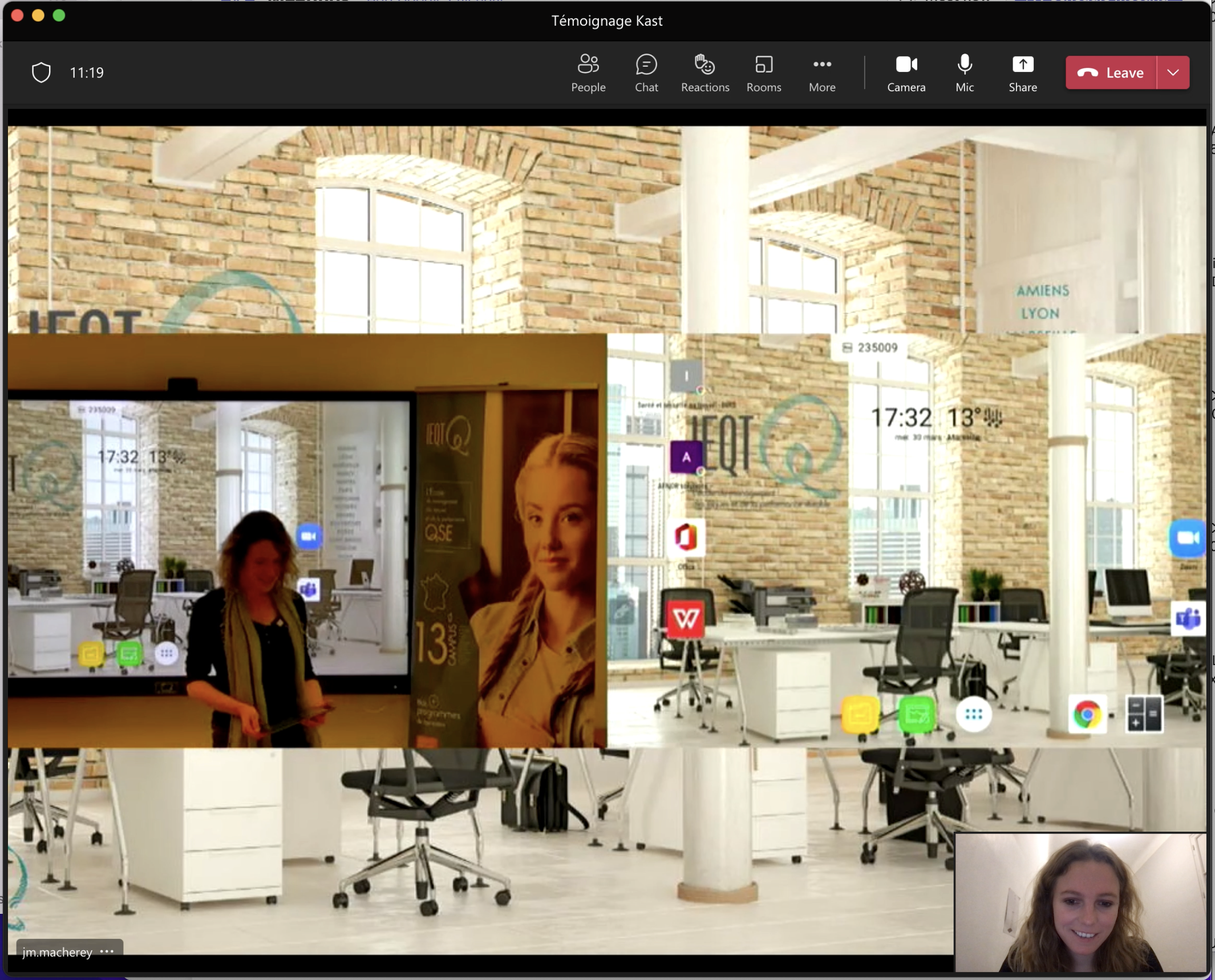
Snapshot of our conversation with Ms. Jubé on Teams, featuring a dual video feed from the Kast camera, in the same configuration as a hybrid class.
The campus's hybrid approach was implemented following a call for projects launched in December 2019 by the Région Sud, aiming to introduce hybrid teaching in higher education programs. The region funded the project and supported the school in setting up the necessary equipment.
The initial objective was to allow isolated students to train remotely. Mobility is not always straightforward and comes with a significant cost. Hybrid, comodal, and remote learning were ways to reduce this barrier to training deployment.
IEQT collaborated with Kalyzée and a digital screen company to install a camera and an interactive screen in its classrooms. In consideration of CSR and to reduce carbon emissions, IEQT sought to collaborate with local businesses. Moreover, the school benefits from personalized support by choosing smaller, locally based companies with responsive customer services in Marseille.
A few months later, the Covid-19 pandemic hit France, and the school was able to ensure the continuity of its teaching easily, thanks to its brand-new equipment!
IEQT currently has two hybrid-equipped rooms, one in Marseille and one in Toulon, featuring:
A camera at the back of the room (Kast Revolt Camera)
A lapel microphone for the instructor (Sennheiser Microphone)
An interactive screen (Digital Screen)
Video conferencing platform (Teams)
Video platform with recordings for asynchronous learning (YouTube)
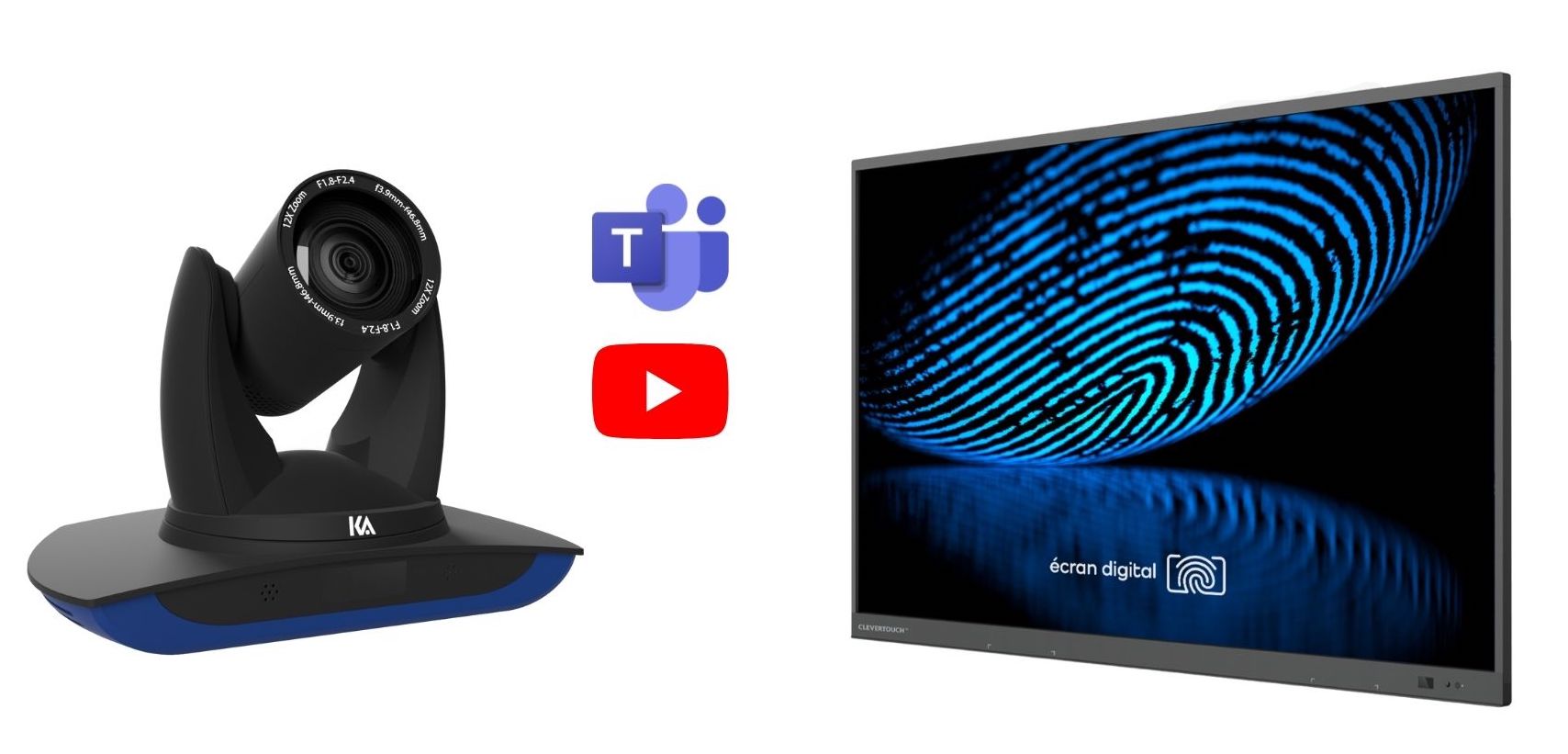
IEQT now offers its students greater flexibility in attending classes. They have classes remotely or in hybrid mode in various cases:
Some of IEQT's classes concern both the Toulon and Marseille campuses. These classes are taught alternately on each campus. If the instructor is in Toulon, Marseille students attend the class remotely from their homes, and vice versa.
In case of long-term illness, disabilities, hindrance, or other issues, students can attend the class synchronously on Teams with interaction. They have a clear view of the entire room, the whiteboard, and the instructor. The double view, with the interactive whiteboard, also allows them to see the instructor's presentations clearly.
If a student cannot attend the class synchronously (live), they can access the replay on the YouTube platform via a shared link. They then catch up on the class asynchronously.
Remote learning allows IEQT to offer instruction to isolated learners who lack the means or finances to travel. Moreover, all the school's students are in apprenticeships. The apprentices are sometimes far from the campus. Through digital means, they no longer need to travel to the campus every week. This represents a significant financial saving for the students.
Augustin, a Master's student, had the opportunity to experience hybrid learning. After a surgery, he couldn't visit the campus for a month. Nonetheless, he attended all his classes via Teams! Initially, he followed the class "live" on YouTube and interacted through Teams' chat.
"It's very practical to see the whole class for interactive exercises."
Today, the setup is even better: the image from the camera, installed at the back of the room, is directly broadcasted on Teams without latency. Moreover, the platforms are not duplicated.
On the instructors' side, hybrid learning is a unanimous success! The interactive screen is a very practical tool. It allows delivering a class while displaying materials, websites, videos, writing, just like on a whiteboard, and all of this is broadcasted live to remote learners. This tool makes instructors want to return to campus, says Jeanne-Marie Jubé.
In conclusion, IEQT has completely succeeded in digitizing its education. This small school is more advanced than some larger institutions. One might wonder if this is due to the support of all stakeholders. Internal communication was well-executed, and now everyone knows how to use technological tools to transform a class into hybrid mode!

